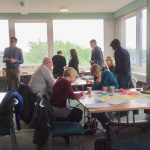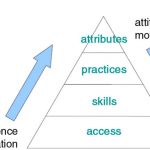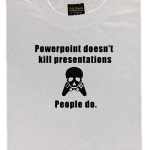“So, can we say ‘skills’?”
As those whose unhappy lot in life it is to have to listen to me moaning on about matters educational will know, I’m not a big fan of the term ‘skills’. Or, more precisely, I’m not a big fan about how this term is often used. I’m even less keen when it’s preceded by […]
The Knowledge ‘versus’ Skills Debate, Part 1: forgetting what we know about knowledge.
One of the many poorly-framed, point-missing ‘debates’ that regularly plague contemporary education goes something like this: ‘should education be focused primarily on teaching knowledge, or on developing students’ skills?’ Even attempts to reconcile the (apparent) ‘knowledge .v. skills’ opposition with reasonable-sounding appeals to its being ‘a bit of both’ miss the main point – namely, […]
The Knowledge ‘versus’ Skills Debate, Part 2: What about ‘transferable skills’?
In the first part of this post, I discussed the need to develop more broad and inclusive understandings of knowledge and to move away from unhelpfully simplistic and reductive notions like ‘study skills’ which, it is wrongly assumed, stand somehow outside the realm of what we call ‘knowledge’. Here, I want to interrogate more closely […]

Using and Learning from Top Hat – a short post about our recent workshop
We recently put on a workshop ‘Using and Learning from Top Hat’. We found out about the problems and pitfalls of using Top Hat, but also how it can promote engagement, improve the experience of students and help lecturers to assess learning. Most importantly, we found out how planning for engagement fundamentally changes the way […]
Tango for beginners
While waiting to be admitted to the room for their first ‘Tango for beginners’ class, participants chatted about their reasons for being there. Some were very keen to learn the dance and were genuinely enthused by what they believed lay ahead in the next couple of hours or so. Others had been ‘dragged’ along, more […]
Supporting student learning: the limits of genericism
‘Learning in higher education involves adapting to new ways of knowing: new ways of understanding, interpreting and organising knowledge. Academic literacy practices… constitute central processes through which students learn new subjects and develop their knowledge about new areas of study. A practices approach to literacy takes account of the cultural and contextual component of writing […]
Criticality, objectivity and values-neutrality
‘While it is advisable to interrogate our research to see if we’re not engaging in wishful thinking and to make sure it is capable of acknowledging possible circumstances of which we disapprove, our values need not be a problem. Sometimes… values may even have a positive effect by directing us to issues and aspects of […]
‘Belonging’ and ‘Resilience’ in Higher Education
Back in July, I gave a brief presentation at the University of Leicester’s Annual Learning and Teaching Conference. Based on some stuff I’d been reading and had been on my mind for a while, the presentation sought to problematise notions of ‘belonging’ and ‘resilience’ in contemporary higher education (HE). This was in response to […]

An Academic Literacies Approach to Digital Literacies
This is an account of my initial attempt to find learning theory to underpin and inform the development of our Digital Literacies framework and its implementation, as part of the LLI’s involvement in the university’s Digital Campus strategy. I drew upon literacies research and on the conclusions from my own MSc research into the […]

PowerPoint doesn’t kill presentations – people do
Bent Meier Sørensen, a Professor in the Department of Management, Politics and Philosophy, Copenhagen University wrote an impressive article in The Independent last week about using PowerPoint (and social media) in teaching. It was impressive in that it could have been a killer parody of techno-phobia and -determinism, written by someone who actually knows what they’re […]

Recent Comments